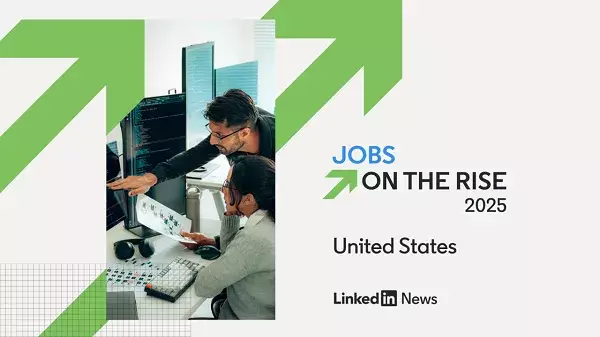As we approach 2025, many individuals are contemplating a shift in their career paths. The landscape of employment is rapidly changing, primarily due to advancements in technology and evolving market demands. The latest report from LinkedIn, titled “Jobs on the Rise,” sheds light on this emerging trend, revealing which job roles are witnessing an increase in demand and the specific skills that employers are prioritizing. Not surprisingly, positions related to artificial intelligence (AI) are at the forefront of this transformation, indicating a significant shift in the types of expertise companies are looking for.
The prominence of titles such as “AI Engineer” and “AI Consultant” in LinkedIn’s report underscores the urgency with which businesses are adopting AI technologies. These roles are among the fastest-growing job listings, signaling a clear need for professionals who can harness the power of AI to enhance business operations. While AI has the potential to revolutionize various processes within companies, it is vital for aspiring job seekers to recognize the limitations of these technologies. Understanding where human judgment and creativity are still irreplaceable will be critical as they navigate their career choices in this increasingly automated workforce.
Interestingly, alongside the rise of AI-related roles, there has also been growth in positions that require a distinctly human touch. Fields such as physical therapy and travel advising exemplify careers that rely on personal interaction, empathy, and nuanced decision-making—qualities that current AI technologies cannot replicate. These sectors highlight a crucial aspect of the employment landscape; as businesses lean into automation for efficiency, there remains a substantial demand for positions that necessitate a human presence. This duality in job market growth presents unique opportunities for individuals looking to pivot their careers.
It’s essential for job seekers to focus on acquiring skills that complement AI capabilities rather than competing directly with them. LinkedIn’s findings reveal that many skills gaining traction cannot be easily automated, suggesting that individuals should cultivate expertise in areas where human intuition and personal engagement are vital. Skills such as emotional intelligence, critical thinking, and complex problem-solving will be invaluable in distinguishing oneself in a crowded job market. Furthermore, while AI can assist in various aspects of work, the human element remains essential for success in many roles.
For young professionals entering the job market, LinkedIn’s report provides a strategic overview of the emerging roles and skills that are becoming relevant in today’s workforce. Recognizing the trends in hiring will help them tailor their educational and professional development efforts accordingly. Beyond just identifying high-demand positions, it is crucial for them to prepare for a hybrid workplace where collaboration between humans and AI becomes the norm.
As we look towards 2025, the evolving job landscape presents both challenges and exciting opportunities for career transformation. By focusing on the growing sectors related to AI while also honing skills that emphasize human expertise, job seekers can position themselves for success in this dynamic environment. Those who adapt, learn, and harness the potential of new technologies while acknowledging the irreplaceable value of human touch will undoubtedly thrive as they navigate their career journeys.


Leave a Reply